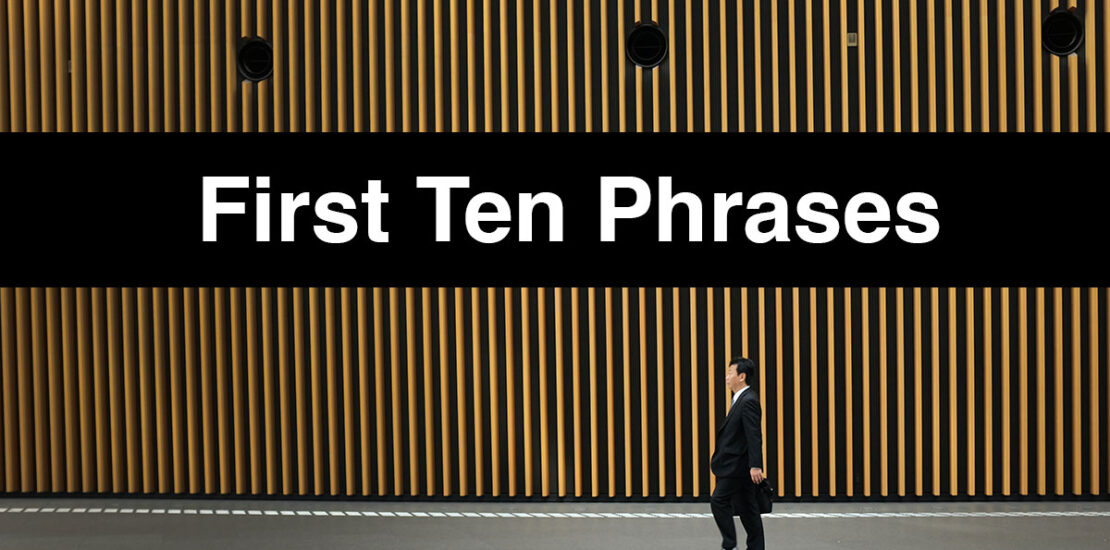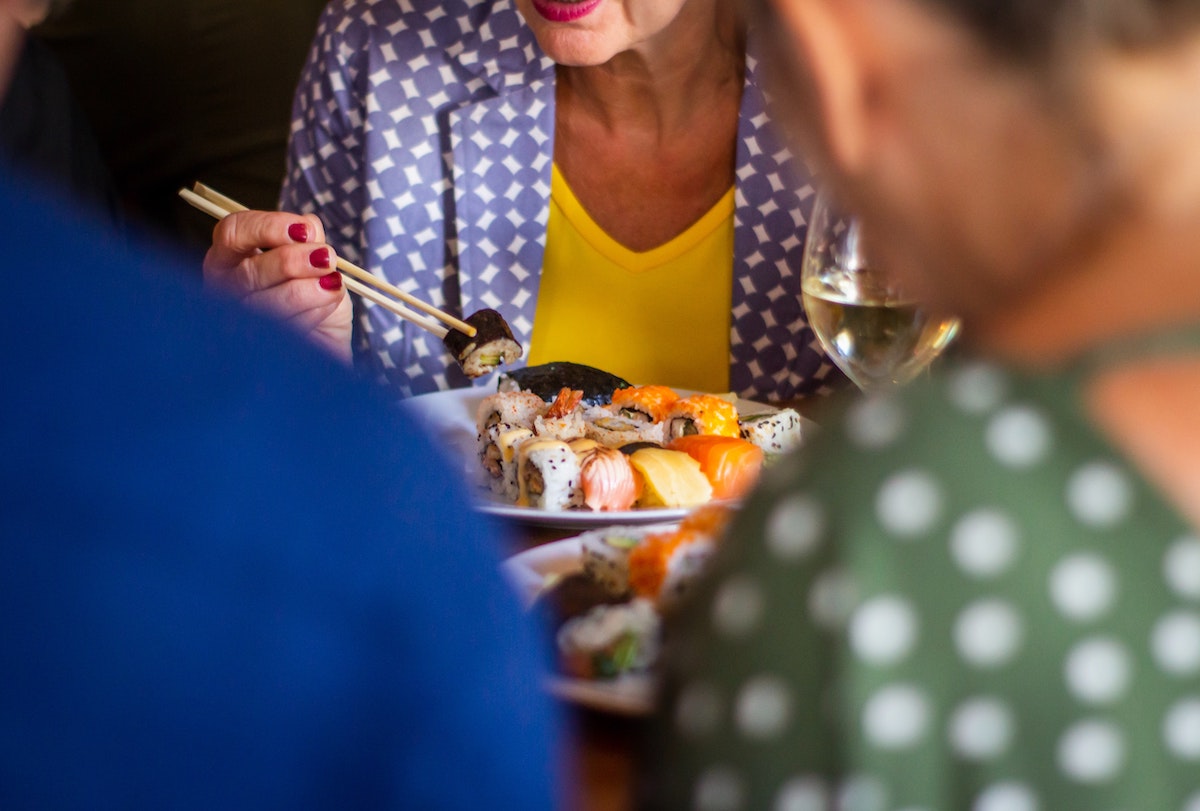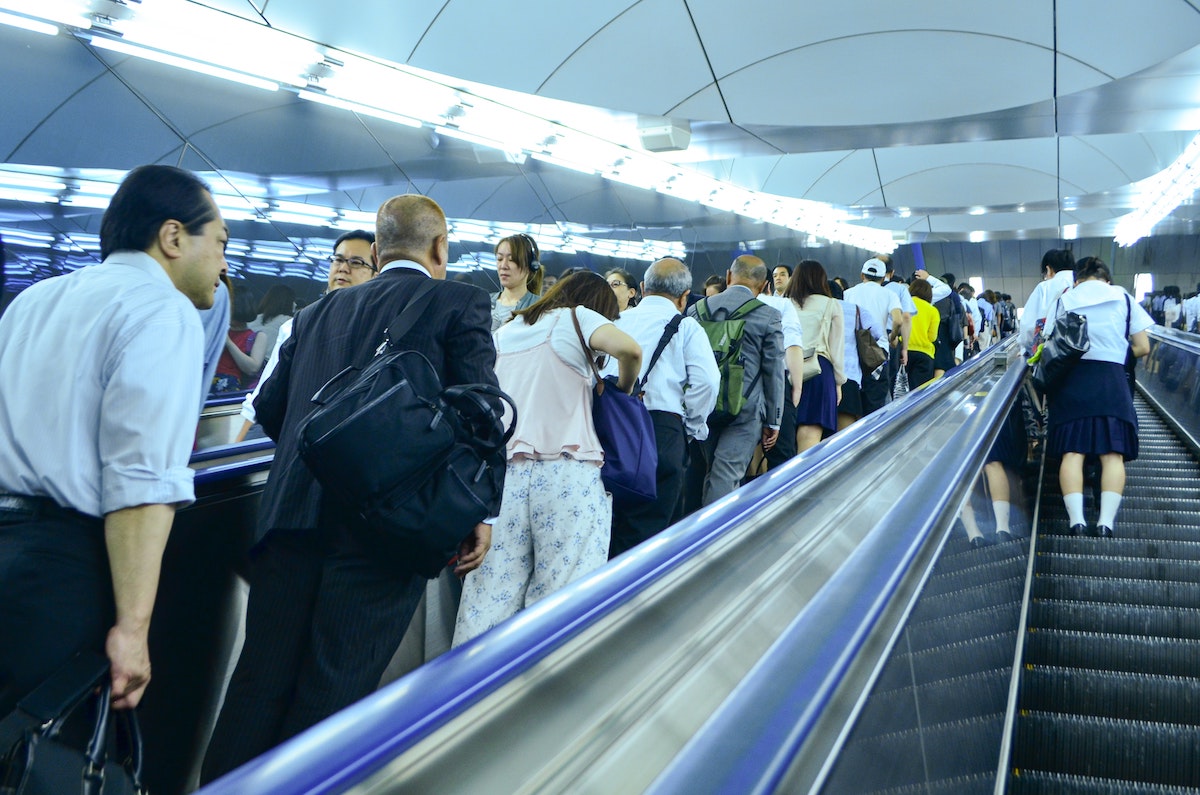What ten phrases or sentences in Japanese are essential to learn during your first days in Japan? Language is culture! In this article, here are the first ten phrases you should learn for life in Japan.

What ten phrases or sentences in Japanese are essential to learn during your first days in Japan? You will see that many Japanese phrases have multiple meanings and encompass much more under the surface than similar phrases in English. Language is culture! So learn these Japanese phrases, and begin to understand the beauty and depth of Japanese culture as well.
- おはようございます – good morning
- こんにちは – hello
- こんばんは – good evening
- さようなら – goodbye
- おやすみなさい – good night
Greetings are essential! In Japanese, there are various words and phrases to use depending on what time of day it is. For most of the day, it’s okay to use the basic “hello” こんにちは “konnnichiwa”. However, in the morning and evening, おはようございます “ohayougozaimasu” (Ohayou for short) and こんばんは “konbanwa” are the phrases to use. When you’re saying good-bye, right before bedtime, you can use おやすみなさい “oyasuminasai” or the basic さようなら “sayounara”.
- いただきます
- ごちそうさまでした
When eating a meal with friends, family or coworkers, make sure you acknowledge those who have prepared your food. Often compared to “bon appetit”, いただきます “itadakimasu” is a phrase that basically means “let’s eat!” But this phrase encompasses a lot, with an underlying thank you to those who prepared the meal and even the farmers who helped to bring this meal to your table. When you’re finished eating, it is polite to simply acknowledge the end of the meal with ごちそうさまでした “gochisousama-deshita”.

- すみません
A simple phrase which means sorry, excuse me, pardon me, thank you, or I beg your pardon? depending on the context. When you’re on public transportation and fighting through crowds, just use すみません “sumimasen”! When you pay with a large bill and will need change, just say すみません . When someone gives you a gift, say すみません. When you didn’t catch what your coworker said, say すみません? An essential all-encompassing phrase that will assist your life in “always thinking of others” Japan!
- (どうも) ありがとうございます
- ありがとう
You can of course use the aforementioned “sumimasen” as thank you, but it’s good to know the common ありがとうございます. Saying thank you to the store clerk who helped you find the laundry detergent, or to your friend who gave you a welcome gift, is always a good practice in etiquette. And if someone says thank you to you, just say どういたしまして “douitashimashite” You’re welcome.
- _______から来ました。- I’m from _______.
As a foreigner in Japan, many people will be curious where you’re from. Do not be offended, it is usually meant as a compliment and people are genuinely curious about where you’re from! When asked, どこから来ました? “dokokara kimashita?” “Where are you from?” you can answer with アメリカから来ました “America kara kimashita” or 台湾から来ました。 “Taiwan kara kimashita.”
As a foreigner, don’t be surprised if people tell you your Japanese is good or that your chopsticks skills are on-point. These are compliments, so say “arigatougozaimasu” and bow in gratitude.
- ______はどこですか?- where is ______?
Don’t know where something is? Try asking: Where is the bathroom? お手洗いはどこですか?”otearai-wa dokodesuka?” Where can I find the toilet paper? トイレットペーパーはどこですか?”toiletto pepa-wa dokodesuka?” Where is the nearest train station? お近くの駅はどこですか?”ochikaku-no eki-wa dokodesuka?” This simple phrase will help you find just what you are looking for! Now let’s hope the answer from the other end involves hand gestures to point you in the right direction.
- はい
- お願いします。

Here is a potential conversation at the store check-out:
Clerk’s Question: Do you need a bag? ふくろいりますか? Fukuro iri-masuka? OR Do you have a bag?ふくろ持っていますか?Fukuro motte-imasuka?
Your Answer: Yes, I have a bag, thank you. Answer: ふくろ持っています。Fukuro motteimasu. OR Bag, please. はい、ふくろお願いします。Hai, fukuro onegaishimasu.
In this age of recycling and eco-friendly bags, most store clerks in Japan will ask if you have a bag (“fukuro”) with you. The store clerk will either ask if you have a bag or if you need a bag, so it is good to know these sentences so that you can answer appropriately. Just say, “Hai, fukuro onegaishimasu” if you need a bag. Or if the waiter at the restaurant asks you if you want water, just say, “Hai, onegaishimasu.”
Making payments at a store or restaurant: I’ll pay by card. カードで。Kaado-de. I’ll pay with cash. 現金で。Genkin-de.
You may be surprised to find that technologically-advanced Japan is still surprisingly dominated by cash, but it is becoming more common to pay with debit and credit cards, or smart phone apps. The cashier will probably ask you something like, お支払い方法は何でですか?Oshiharai houhou-wa nanide-desuka? (How will you be paying?)
Tell the cashier how you’ll be paying by saying _____ で。_____-de. By card. “Ka-do de.” Or With cash. “Genkin-de”.
_______, please. ________ください。______kudasai.
Need water? お水ください。 “Omizu kudasai.” Want another round of ramen noodles? 替玉ください。 “Kaedama kudasai.” This basic sentence structure will help you ask for what you need.
Phrase to say at the end of work or when thanking others for hard work: お疲れ様でした。Otsukaresama-deshita.
The basic meaning of “Otsukaresama-deshita” is “thank you for your hard work”, and can be used when you want to tell a coworker they did a good job on something, or if they simply spent a lot of time on something. This phrase is also essential when you’re going home for the day from work. Just shout out, “Otsukaresama-deshita!” when leaving. Japan takes pride in its hard-working culture, and so acknowledging hard work is important.
So, I’ll leave you with this. If you made it to the end of this article, お疲れ様でした!



